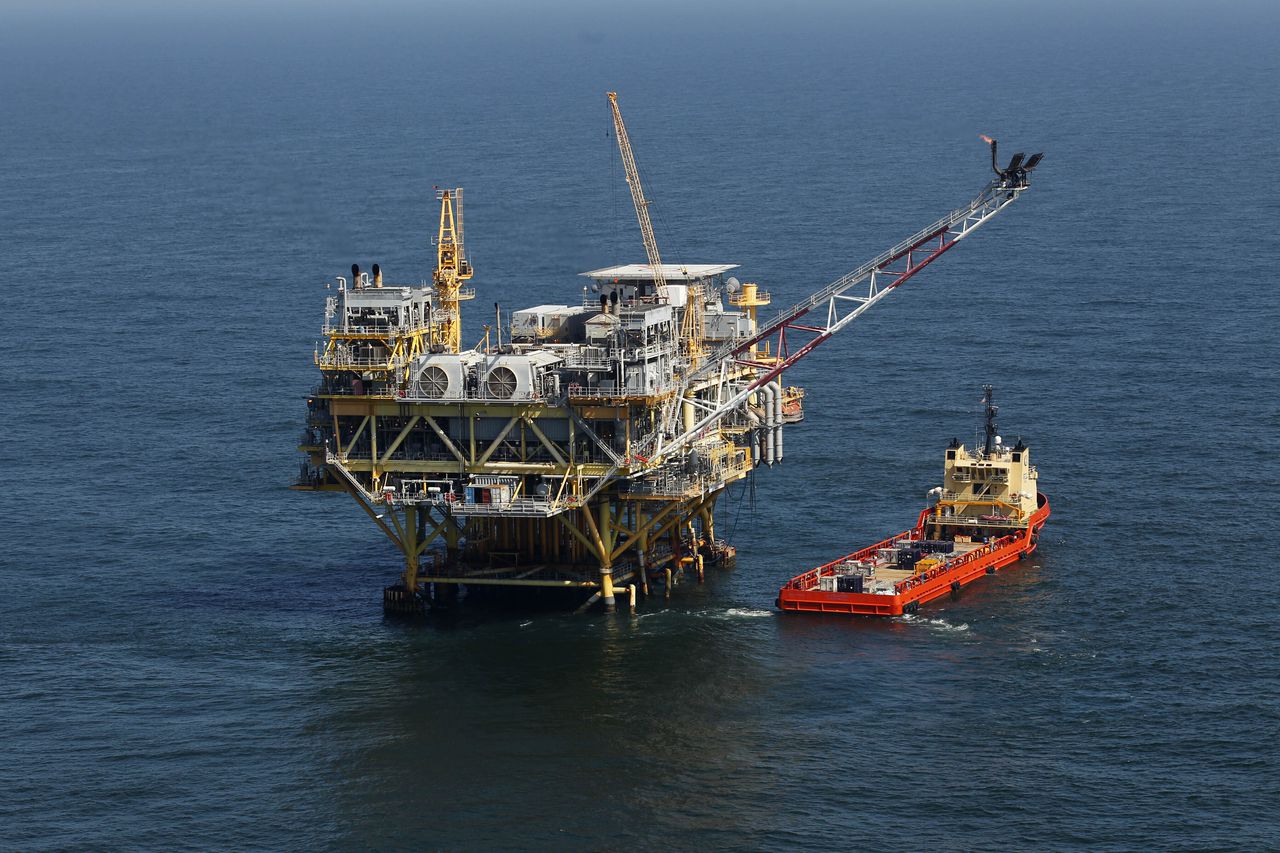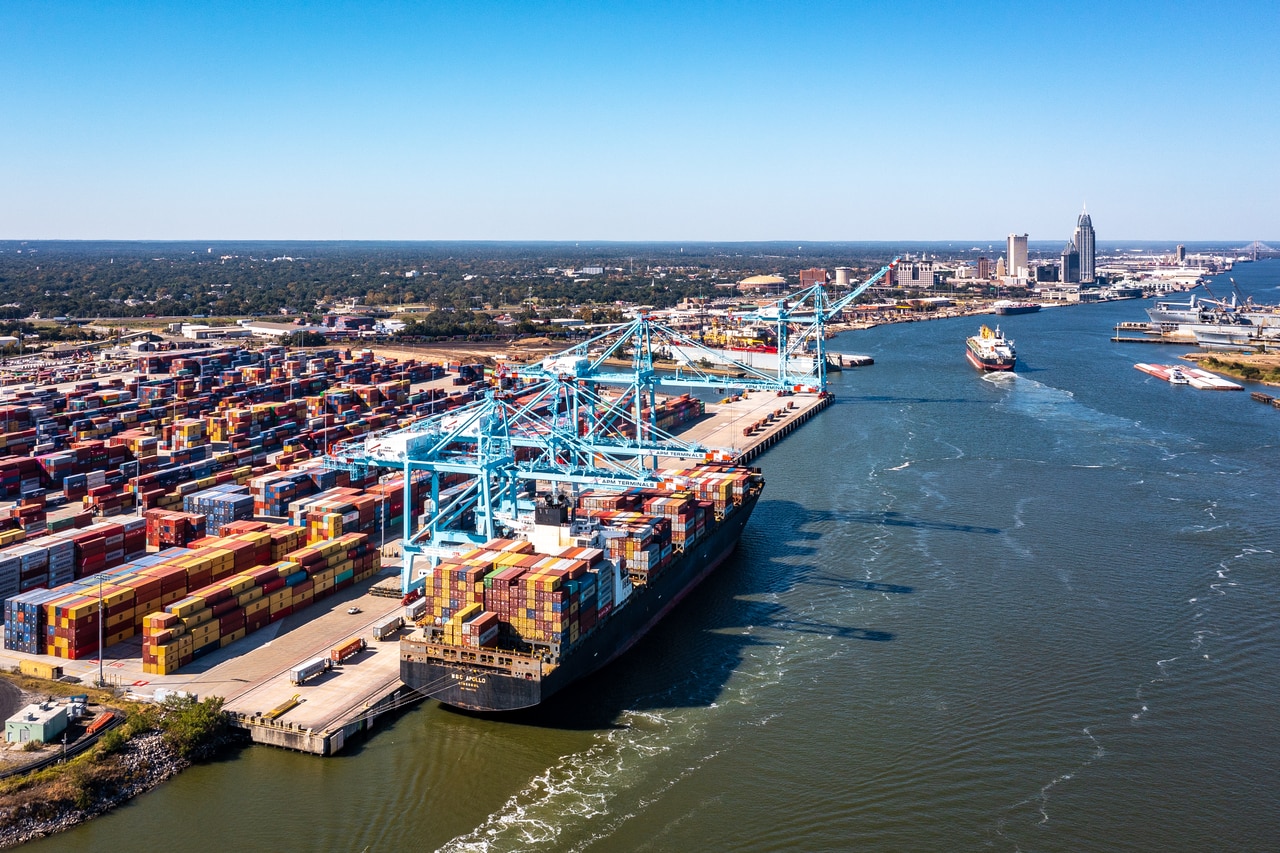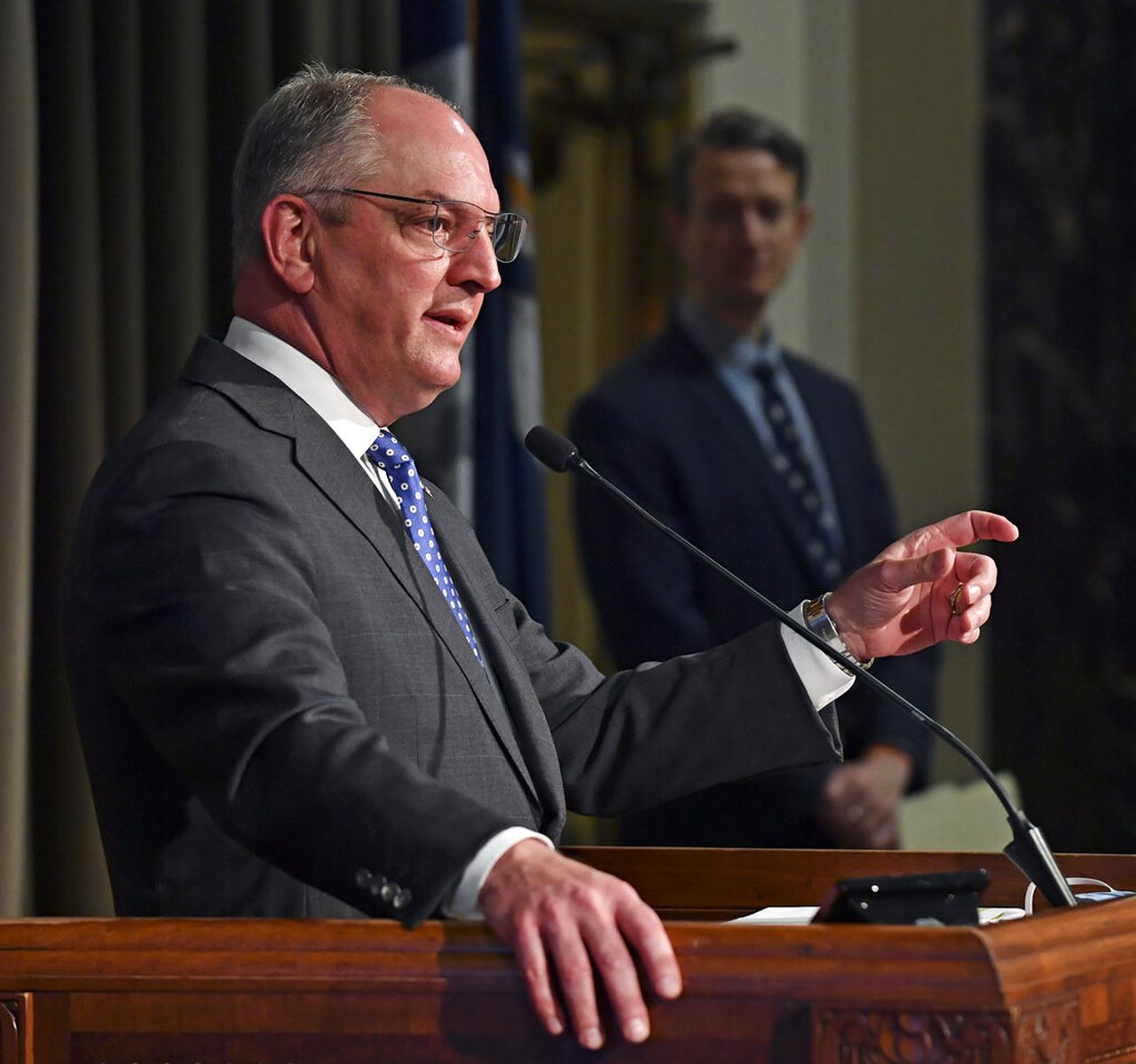Why governors of four Gulf states are worried about a whale
A bipartisan coalition of four Gulf Coast governors are calling on the Biden Administration to reconsider restrictions protecting a critically endangered and elusive whale species.
The Outer Continental Shelf Governor’s Coalition (OCSGC) – in an October 5 letter to Andy Strelcheck, the Southeast Regional Administrator with the National Marine Fisheries Service (NMFS) – said that expanding a critical habitat designation for Rice’s whale would harm commerce traversing the Gulf of Mexico.
Related content:
- Why the Rice’s whale in the Gulf of Mexico is creating a stir in Congress
- Protecting one of the world’s rarest whales could hurt Port of Mobile, officials say
The governors are claiming restrictions under consideration could damage the U.S. economy. According to the letter, a requirement for federal permitting from the NMFS before offshore commercial activity can occur would create an economic “ripple effect” that is “felt across the entire U.S. economy.”
It would be harmful, they said, at a time families and businesses are “already struggling with inflation.”
“The cumulative effects of these restrictions would have severe effects on the economies of our coastal communities, our states, and the entire U.S. with the volume of trade that transits through the Gulf,” the letter reads.
Louisiana Gov. John Bel Edwards is the only Democratic governor to sign onto a letter requesting the Biden Administration to reconsider restrictions on the offshore oil and gas industry aimed at protecting Rice’s whale. (Hilary Scheinuk/The Advocate via AP)AP
The letter was signed by Democratic Gov. John Bel Edwards of Louisiana, Republican Governors Kay Ivey of Alabama, Tate Reeves of Mississippi, and Greg Abbot of Texas.
Critical habitat

A rig and supply vessel in the Gulf of Mexico, off the coast of Louisiana. (AP Photo/Gerald Herbert, File)AP
The Biden administration is proposing to protect much of the Gulf – from Texas to Florida, including Alabama – from economic activity that is harmful to the Rice’s whale first confirmed as a species only two years ago, and which some researchers say only 51 remain.
The proposed restrictions include limiting vessel speeds and other operational restrictions on offshore fossil fuel activity. The whale’s No. 1 killer, according to environmental groups, are vessel strikes.
Environmental groups, which are pushing for the greater protections for the 60,000-pound whale, argue that there are already critical habitat designations in place for other endangered species, and that those have not halted the offshore energy industry.
Michael Jasny, director of marine mammal protection at the Natural Resources Defense Council, said the letter is a “sky-is-falling” attitude that “bears no resemblance to reality.”
“Critical habitat has been designated for multiple Gulf species – manatees, for endangered sea turtles, for Gulf of Mexico sturgeon, in coastal areas that see far more commercial and industrial activity than any of the waters concerned here,” said Jansy. “Has critical habitat completely shut down coastal activity? Of course not. What it has done is help focus conservation effort on the habitat needed to save some of the Gulf’s most iconic animals.”
Kristen Monsell, Oceans Legal Director with the Center for Biological Diversity in Oakland, said the letter from the governors “reads like it was written by the oil and gas industry.”
“These governors aren’t elected to represent oil and gas companies; their job is to represent and protect the people and wildlife in their states,” Monsell said.
Republican approach
In recent months, offshore oil drillers and GOP lawmakers from Gulf Coast states have been responding with lawsuits, legislative proposals and other actions aimed at stopping the protections of Rice’s whales. The species is named after Dale Rice, who first published that the whales lived in the Gulf of Mexico in 1965.
The most recent twist occurred last month when a federal judge in Louisiana ordered the Biden Administration to hold an offshore oil lease sale of 6 million acres of protected habitat. The administration was seeking to remove all 6 million acres of habitat. An appeals court granted the Biden Administration to delay the lease sale until Nov. 8.
Republicans fear the Biden Administration will withdraw acreage in the next five-year offshore oil and gas leasing plan. They are also fearful over a reduction of oil and gas leases affecting an industry that employs hundreds of thousands of people along the Gulf Coast.
Republicans are urging the NMFS to conduct a more thorough and complete scientific analysis before adding restrictions on offshore oil exploration.
But environmental advocates, like Monsell, said there is not enough time to conduct additional studies.
“The agency’s proposal is based on the best available science, as the law requires,” she said. “The whale doesn’t have time to wait for NMFS to gather more data.”
The governors, in their letter, are also accusing NMFS for not adequately weighing economic impacts regulations will have on Gulf states.
Katie Wagner, a spokeswoman with National Oceanic and Atmospheric Administration, said the agency is aware of the letter from the governors and “will respond through the appropriate channels.”
Looming concerns

A container ship is serviced at the Mobile container terminal operated by APM Terminals. The operation was the fastest-growing container terminal in the United States from 2017 to 2022, according to the Alabama State Port Authority.Courtesy ASPA
Lawmakers have introduced legislation in Congress that, among other things, restricts federal agencies from issuing rules or offshore oil and gas lease requirements or recommendations to slow down vessel speeds and operational restrictions.
According to the OCSGC, restrictions on vessel speeds and other operational limitations would likely mean “increased bottlenecks, longer delivery timelines, nighttime movement restrictions, cargo delays cost increases across every supply chain, delays in offloading/onloading at U.S. ports, and a myriad of safety impacts.”
The restrictions would affect commercial fisheries, barge and equipment vessels, ships carrying automobiles and medicines, and cruise lines.
The governors say a lot is at stake with their economic coastal engines:
- Louisiana is home to five of the nation’s 15 largest ports by shipping volume, while commercial fishing landings are the largest in the continental U.S., second only to Alaska.
- Texas ranks No. 1 in the total tons of cargo that move through its ports.
- Alabama’s Port of Mobile is the fastest-growing container terminal in the U.S.
- Mississippi’s location of the Port of Gulfport allows customers to distribute products to 75% of the U.S. market within 24 hours.
In Alabama, the Port of Mobile has an estimated economic impact of $85 billion to Alabama each year and handles in excess of 55 million tons of domestic and international cargo. The Port creates, both directly and indirectly, some 300,000 jobs.
“We hope that NMFS can understand why the governors of these states and their vital ports are concerned about any proposed regulation that jeopardizes our critical infrastructure,” the letter states.
Environmentalists say the offshore fossil fuel industry to blame for the whale’s endangered status.
They say that if the species was lost, it would be the first large whale protected under the Endangered Species Act of 1972 to disappear, as well as one of the largest species in terms of animal size. Scientists say Rice’s whale is the only whale found exclusive to the United States.
“The Rice’s whale is at serious risk from extinction and we can’t save these animals if we don’t protect their most important habitat areas,” Monsell said.
Scientists point to the Deepwater Horizon disaster of 2010, for killing out one-fifth of the whale’s population. They say a risk is still posed by oil extraction and are worried about any further deaths to the animal given that so few remain alive.
Jansy said asking the industry to slow its vessels down is akin to implementing reduced speeds near a school.
“More than 20 percent of the entire Rice’s whale population was lost to the Deepwater Horizon disaster, according to the government’s estimates,” Jansy said. “Now the same industry, and the politicians who follow its lead, are trying to kill any protections for the whale. Why? Because the companies that made $50 billion in profits last year don’t want to slow down in the animal equivalent of a school crossing.”
He added, “Rice’s whales are among the Gulf’s most magnificent creatures, found nowhere else on the planet. They are part of what makes the Gulf special. If you can’t even try to save these whales, it’s hard to know what can be saved.”
